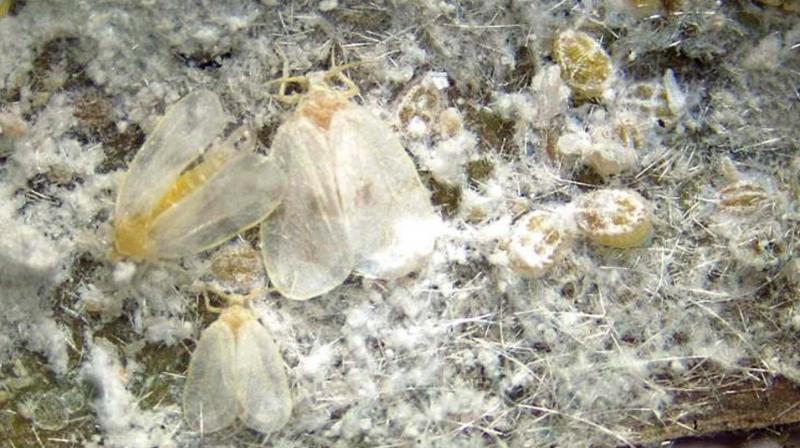Scientists allay fears of whitefly pest attack

ALAPPUZHA: The whitefly pest attack on coconut palms that occurred in a few southern districts in the state last year is unlikely to recur this time. The multiplication of the pest (aleurodicus species) has been checked by the Central Plantation Crops Research Institute, Kayamkulam, the regional station of Indian Council of Agricultural Research. The CPCRI scientists have allayed the concerns of the farmers and said the institute was well-equipped to control the pest with the natural enemy parasite, 'encarsia.'
Dr. V. Krishnakumar, head of the CPCRI, Kayamkulam, told Deccan Chronicle that no whitefly attack had been reported in southern districts so far unlike north Kerala and Karnataka. "This has been made possible by the creation of natural enemy parasites by the station. The climatic change has also helped bring down the breeding of the flies. "The CPCRI is currently trying to develop 'encarsia' in labs and release it in the affected areas," he said.
The pest is a moth-like bug that lays eggs in a spiralling fashion in discontinuous circles. Females have dark blotches on wings and males have well-developed claspers on the abdomen. The aleurodicus species had emerged in Alappuzha, Pathanamthitta and Kollam and in Tamil Nadu in December last. Following this, a team of scientists of ICAR-CPCRI took preventive measures. The research by Dr. Chandrika Mohan, Dr. Joseph Rajkumar and Dr. V Krishnakumar found that in some affected places, parasitoid 'encarsia' bred in the coconut groves to fight the whitefly outbreak.
"The deficit monsoon and dip in the relative humidity have caused the flare-up of the pest. The leaflets of coconut palms in the plantations should be kept wet to restrict whitefly attack," said Dr Kumar. "Encarsia helps in natural bio-suppression. However, the farmers can recognise the symptoms of whitefly attack with changes on leaflets, including black colour on the upper surface," he said. A kind of whitefly from a different species called 'aleurodicus dispersus' had affected some 200 host plants in the state in 1995.

